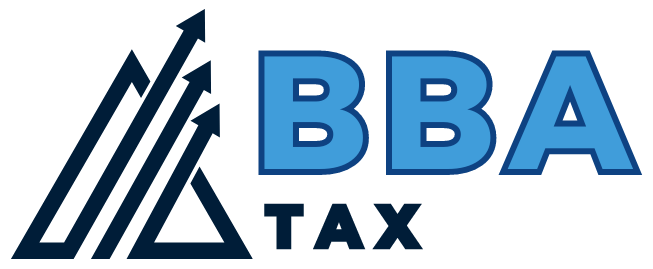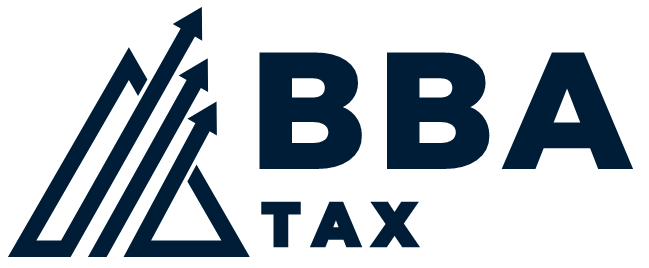As the year comes to a close, Canadian business owners must take proactive steps to ensure their financial affairs are in order and that they optimize their tax situation. Effective year-end tax planning can help minimize tax liabilities, maximize deductions, and ensure compliance with the Canada Revenue Agency (CRA). This guide outlines key strategies that business owners in Canada should consider before the tax year ends.
Table of Contents
- Why Year-End Tax Planning is Essential
- Review Business Income and Expenses
- Take Advantage of Capital Cost Allowance (CCA)
- Optimize Payroll and Employee Benefits
- Maximize Business Deductions and Credits
- Assess Corporate Structure and Compensation
- Contribute to Retirement and Investment Accounts
- Ensure Compliance with CRA and Filing Requirements
- Plan for the Upcoming Tax Year
- How BBA Tax Can Help Your Business
Why Year-End Tax Planning is Essential
Year-end tax planning helps business owners:
- Reduce taxable income by leveraging deductions and credits.
- Optimize cash flow through tax-efficient planning.
- Avoid penalties and interest by meeting CRA deadlines.
- Ensure compliance with corporate tax laws and regulations.
- Prepare for the upcoming fiscal year with strategic financial planning.
By implementing these strategies, business owners can improve their overall financial health and avoid last-minute tax season stress.
1. Review Business Income and Expenses

One of the most effective tax strategies is analyzing income and expenses before year-end. This includes:
- Deferring income to the next year if your tax rate is expected to be lower.
- Accelerating deductible expenses, such as office supplies, repairs, and professional fees, before year-end to reduce taxable income.
- Ensuring all invoices are accounted for and expenses are properly documented.
Optimizing Deductions
- Home Office Expenses: If you operate from home, you can deduct a portion of rent, utilities, and internet expenses.
- Business Equipment & Supplies: Purchasing assets before year-end allows for immediate deductions.
- Salaries & Bonuses: Paying employee bonuses before December 31 helps lower taxable income.
2. Take Advantage of Capital Cost Allowance (CCA)
Business owners can claim Capital Cost Allowance (CCA) to deduct the depreciation of assets. Before year-end, consider:
- Purchasing equipment to maximize first-year depreciation.
- Taking advantage of the Accelerated Investment Incentive, which allows for higher deductions in the first year.
- Writing off obsolete equipment to claim a terminal loss.
3. Optimize Payroll and Employee Benefits
- Payroll Taxes: Ensure all payroll taxes, CPP contributions, and EI premiums are up to date.
- Bonuses and Incentives: If planning to reward employees, consider issuing bonuses before December 31 for tax benefits.
- Health & Dental Benefits: Consider implementing a Health Spending Account (HSA) for tax-free benefits to employees.
4. Maximize Business Deductions and Credits
Canadian business owners can reduce taxes through various deductions and credits, including:
- Scientific Research & Experimental Development (SR&ED) Tax Credits: If your business invests in innovation, take advantage of this incentive.
- Apprenticeship Job Creation Tax Credit: If you hire apprentices, you may qualify for tax credits.
- Work-From-Home Deductions: Eligible business owners can claim home office expenses if they work remotely.
- Charitable Donations: Donations to registered charities provide tax credits and improve corporate social responsibility.
5. Assess Corporate Structure and Compensation

- Salary vs. Dividends: Determine the most tax-efficient way to withdraw funds from your corporation.
- Income Splitting: Consider paying reasonable salaries to family members involved in the business to lower the overall tax burden.
- Incorporation Considerations: If your business is not yet incorporated, assess whether incorporation can provide tax advantages.
6. Contribute to Retirement and Investment Accounts
- Registered Retirement Savings Plan (RRSP): Contributions made before the deadline (March 1) can reduce taxable income.
- Tax-Free Savings Account (TFSA): Maximize tax-free investment opportunities.
- Individual Pension Plan (IPP): Consider an IPP for retirement savings while reducing corporate taxes.
7. Ensure Compliance with CRA and Filing Requirements
- T4 and T5 Slips: Ensure all employee and shareholder remuneration is reported correctly.
- GST/HST Remittance: File and remit sales tax before deadlines.
- Corporate Tax Installments: If required, ensure quarterly tax installments are up to date to avoid penalties.
- Bookkeeping Review: Work with an accounting firm in Ottawa to ensure accurate records before year-end.
8. Plan for the Upcoming Tax Year
- Tax Projections: Forecast income and tax liabilities for better planning.
- Update Business Plans: Adjust your business strategy based on financial insights.
- Consult with a Tax Accountant: A professional Ottawa tax accountant can identify additional tax-saving opportunities.
How BBA Tax Can Help Your Business

Navigating year-end tax planning can be complex. At BBA Tax, our expert accountants in Ottawa provide personalized corporate tax solutions to help businesses:
- Maximize deductions and minimize tax liabilities.
- Ensure compliance with CRA regulations.
- Develop a tax-efficient strategy for long-term financial success.
Final Thoughts
Year-end tax planning is crucial for Canadian business owners looking to optimize their tax position. By reviewing income, maximizing deductions, and leveraging strategic tax planning, businesses can reduce tax burdens and improve financial stability.
Need Help with Year-End Tax Planning? Contact BBA Tax Today!
📞 Call us at (613) 722-6638
📧 Email us at admin@bbatax



